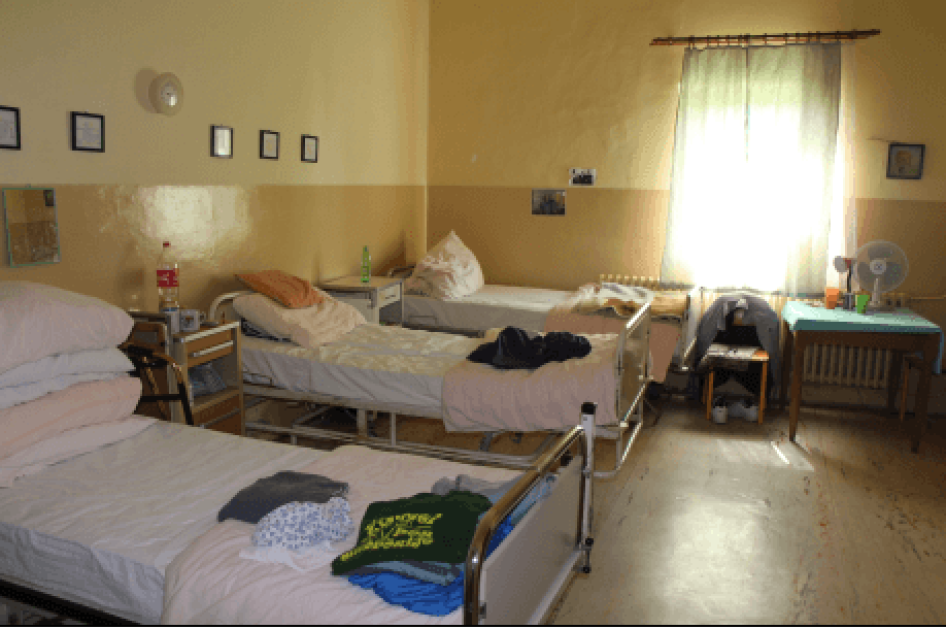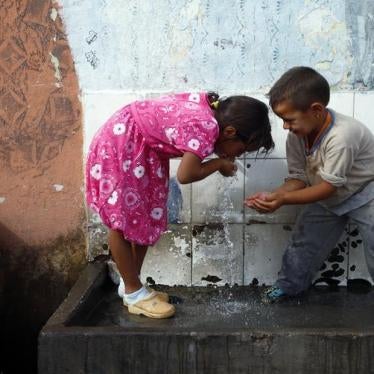(Brussels) – Thousands of children and adults with disabilities remain trapped in institutions a decade after Croatia ratified the international disability rights treaty, Human Rights Watch said today. Many more are denied the right to make any decisions for themselves.
In an April 2018 meeting with Human Rights Watch, the Ministry of Demographics, Family, Youth, and Social Policy promised to adopt a new plan to support community-based living for people with disabilities, including those in private institutions and family homes. In a May 22 letter to Human Rights Watch, however, the ministry said that people with disabilities who need long-term and intensive care will remain in institutions. People with psychosocial disabilities in psychiatric hospitals and those in foster care remain excluded from the government’s efforts.
“Croatia has been seriously dragging its feet on disability rights in recent years, including keeping thousands of children and adults with disabilities in institutions,” said Emina Ćerimović, disability rights researcher at Human Rights Watch. “Croatia should mark the 10th anniversary since ratifying the disability rights treaty by making sure that children with disabilities grow up in families and that people with disabilities can live independently in the community with necessary support.”
Despite some initial progress to meet the requirements of the Convention on the Rights of Persons with Disabilities, the process of moving people out of institutions and into community-based living has stalled. According to official data, between 2011 and 2016 the government supported approximately 700 people to move out of state-run institutions and into apartments. Those who did move are successfully living in their communities, underscoring that deinstitutionalization is both the right thing to do and effective, Human Rights Watch said.
Nevertheless, in the first half of 2017, only 15 adults were moved from institutions to independent community living. In the same period, 75 children and 21 adults were reunited with biological families.
Jelica Getto, a 61-year-old woman, lived in an institution for people with psychosocial disabilities for 17 years. She moved to an apartment in Osijek in 2012 and, in 2014, described the experience to Human Rights Watch: “My dignity has been returned to me – I feel like a human being.”
According to the 2017 government figures, however, more than 7,800 adults and children with disabilities live in state-run institutions. More than 2,000 others live in privately run, but state-funded institutions, including smaller family homes, which can accommodate up to 20 people with intellectual or psychosocial disabilities. Many others live in long-term care in psychiatric hospitals in Croatia without their consent.
On May 21, the Croatian government published a draft Law on Foster Care that would prioritize placing adults with disabilities in foster care, including without their consent. According to the government, more than 2,455 adults with disabilities live in foster care. Placing adults in foster care can limit their interaction with the community and their ability to make their own decisions, Human Rights Watch said.
“While appropriate for children, foster care is not appropriate for adults with disabilities who are placed in a family without any choice or alternative,” Ćerimović said. “People with disabilities have the right to live independently with control over their lives and the ability to make individual choices with support as necessary. Any forced placement, even with a well-meaning family, should be ended.”
Placing adults with disabilities in foster care has been criticized by the United Nations Committee on the Rights of People with Disabilities and Croatia’s Ombudswoman for Persons with Disabilities.
Many people with intellectual or psychosocial disabilities end up in institutions or foster care because they are denied legal capacity or the right to make basic decisions for themselves. A guardian makes some or all decisions for them. About 18,000 people with intellectual or psychosocial disabilities are under some form of guardianship in Croatia.
In June 2014, the Croatian parliament adopted a new Family Act which abolished full guardianship. It required courts to review all previous decisions on deprivation of legal capacity with the aim of restoring partial or full legal capacity to those previously stripped of it by January 2020. Since then, courts have reviewed only 1,179 cases, restoring full legal capacity to just 95 people and partial legal capacity to 273. Restoring partial legal capacity means a court can specify what decisions a person is allowed to make independently and those for which a guardian will continue to make, such as living arrangements and health care.
The Convention on the Rights of Persons with Disabilities guarantees the right for all people with disabilities to live independently and be included in the community, regardless of their disability, the presence of multiple disabilities, or the need for a high level of support. The freedom for individuals to make decisions and control their lives is essential to living independently, Human Rights Watch said. In December 2017, the Council of the European Union called on EU governments to ensure that everyone has the right to live independently within their community and to play an active part in society.
“The Croatian government should follow through on its promises and fully meet its obligations under the disability rights treaty to respect the rights of everyone who has a disability to live independently and make their own choices,” Ćerimović said. “The government helped make this a reality for hundreds of people and should build on this experience for thousands of others.”









